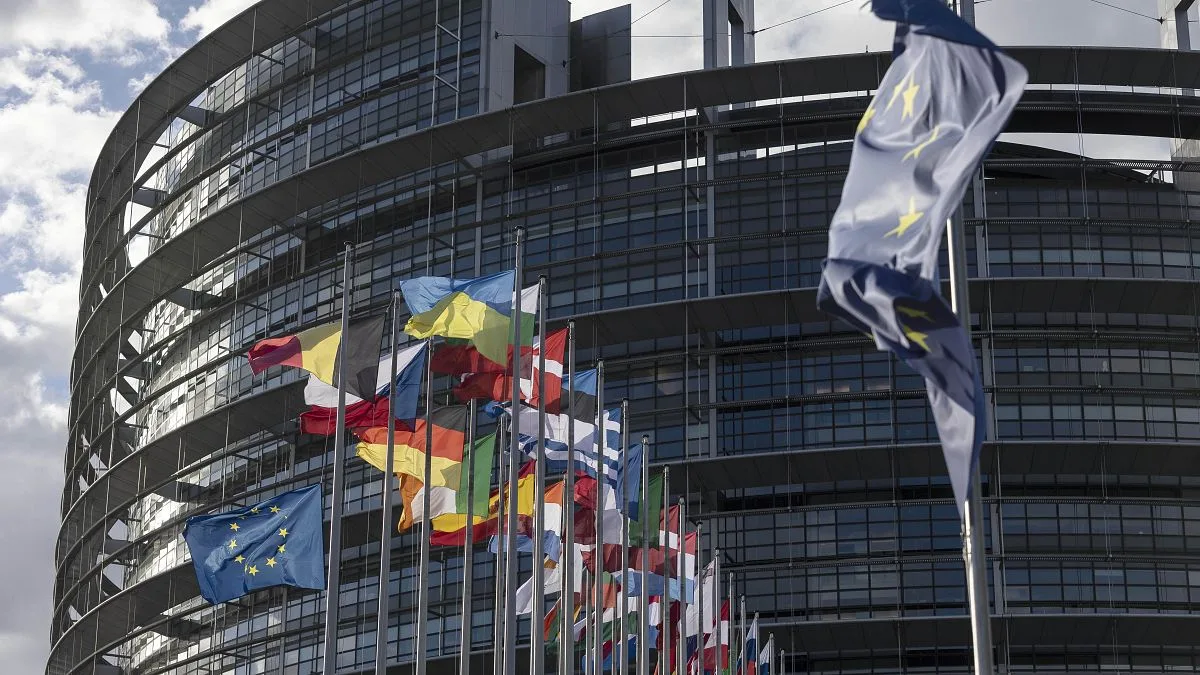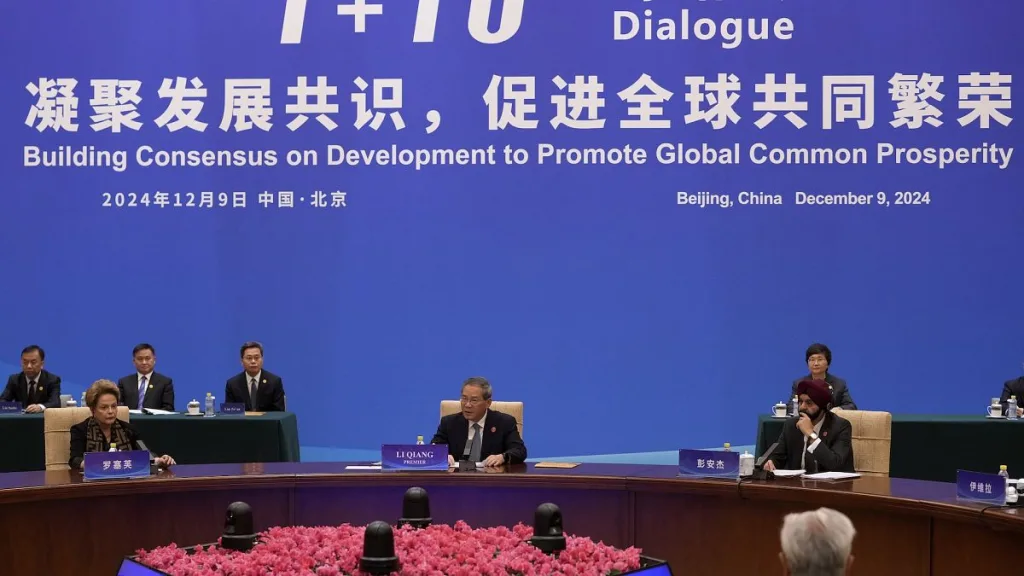While discussing the challenges posed by technologically advanced and cost-effective Chinese competitors to Europe’s automotive sector, Members of the European Parliament (MEPs) ended up in a lengthy debate about the Green Deal policy aimed at phasing out petrol and diesel cars in Europe.
On October 8, a European Parliament debate centered on the crisis confronting Europe’s car manufacturers witnessed the European Commission defending its plan to effectively ban the sale of new petrol and diesel vehicles by 2035. This discussion highlighted a clear divide between left- and right-leaning MEPs concerning this significant climate policy objective.
Economy Commissioner Valdis Dombrovskis emphasized the certainty this target has provided for manufacturers and investors alike. “It has also granted sufficient time to facilitate a fair transition,” he stated to MEPs in Strasbourg.
Dombrovskis underscored that there are binding targets for essential infrastructure, such as charging points, although he acknowledged that the rollout across Europe has been uneven thus far. “There is an urgency to expand and evenly distribute charging infrastructure to support the anticipated surge in electric vehicle adoption across all EU member states,” he remarked.
Jens Gieseke, the transport policy lead for the center-right European People’s Party (EPP), echoed concerns about the lack of preparedness for the transition, highlighting inadequate infrastructure for electric vehicles as evidence that “the transformation is not working.” The German lawmaker indicated that car manufacturers are off target for their average CO2 emissions, warning of potential fines amounting to billions of euros if they don’t significantly adjust their sales portfolios by the end of 2025.
“The automotive industry is in a significant crisis,” Gieseke cautioned. “The legislative framework is too narrow and inflexible. The consequences are dramatic.”
Provisional data from the European Environment Agency indicated that 10.7 million passenger cars were sold in 2023 across the EU, Norway, and Iceland, with an average CO2 emission of 106.6 grams per kilometer under test conditions. This figure is comfortably below the current limit of 115.1 grams, yet it is set to tighten to 93.6 grams next year as per legislation established in 2019.
Manufacturers face steep penalties of €95 for each vehicle sold exceeding the CO2 limit. Should last year’s figures repeat in 2025, the fines could surpass €13 billion across the industry, with additional penalties for vans compounding the total by several billion more.
Gieseke posited that repealing the ban on combustion engines, a long-standing request of German conservatives within the EPP, could be part of the solution. He advocated for a comprehensive approach to decarbonization, asserting, “We’re missing the boat by focusing exclusively on electric vehicles; we need a diverse mix of technology and climate-neutral fuels.”
Mohammed Chahim from the center-left Socialists & Democrats group cautioned that China is “outpacing” the EU in electric vehicle development. He echoed Dombrovskis’ earlier comment about European manufacturers facing energy and raw material costs approximately 30% higher than their main competitor.
“Chinese electric cars are significantly cheaper – they have taken the lead in that technology,” Chahim said. Nonetheless, he stressed that the solution does not lie in abandoning climate policy objectives.
“Those lobbying for delays and rollbacks in legislation are focused solely on short-term gains, neglecting the future of workers and European consumers,” he warned.
The debate, however, seemed to overlook how to address the technological gap with China’s electric vehicle capabilities, as well as the looming plant closures across the EU. The EU has already sparked a trade dispute by imposing tariffs on imported Chinese electric vehicles, citing unfair state subsidies not available from Beijing.
Dombrovskis remarked that China holds advancements in areas like battery technology, software, and infotainment systems. “There’s a global race for net-zero technologies,” he stated, noting the International Energy Agency’s forecast that one in five cars sold this year will be electric.
“Europe cannot afford to lag behind and lose its competitive edge in this race,” the commissioner insisted.
Photo credit & article inspired by: Euronews



